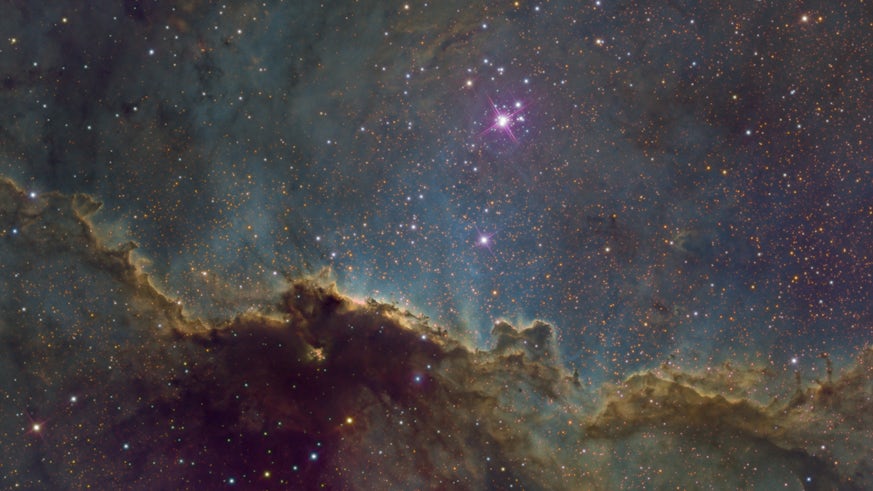Cardiff scientists to lead hunt for dark matter
13 January 2021

Cardiff University scientists are to lead a consortium hoping to track down one of the most mysterious materials in the Universe – dark matter.
The £5m Quantum-Enhanced Interferometry (QI) collaboration will use state-of-the-art quantum technology to shed more light on the material which makes up roughly 27 per cent of the Universe but has yet to be directly detected.
The team also hope their efforts will go some way to informing the long-sought-for unification of quantum physics and gravity theory, by searching for signs of quantization of space-time.
The project has received funding from UK Research and Innovation (UKRI) as part of a £31m investment in seven projects that will demonstrate how quantum technologies could solve some of the greatest mysteries in fundamental physics.
As part of the project the team will build new table-top experiments to search for dark matter based on a technique known as interferometry.
Interferometers are extremely precise devices that use beams of light to measure things with extraordinary accuracy and will allow the researchers to explore how dark matter interacts with photons, the basic unit of light.
Dark matter is composed of particles that do not absorb, reflect, or emit light, so cannot be seen directly. Scientists know that dark matter exists because of the effect it has on objects that we can observe directly.
For example, as a galaxy spins it should be torn apart, but this does not happen as gravity is holding it together. However, the amount of gravity required to do this is enormous and could not be generated by the visible matter in the galaxy, so scientists believe that dark matter is playing a part.
Understanding dark matter is important to understanding the size, shape and future of the Universe as well as the formation and evolution of galaxies and clusters.
In addition to the hunt for dark matter, the QI collaboration will explore the quantum aspects of space-time and determine how the very different and conflicting scientific theories of quantum mechanics and general relativity can be finally unified.
Principal Investigator of the QI Collaboration Professor Hartmut Grote, from Cardiff University’s School of Physics and Astronomy, said: “We are delighted that we can build new experiments using quantum technologies to try to shed light on these fundamental questions."

Here in Cardiff we will build a new experiment searching for signs of quantization, or graininess, of space-time. We will also support the new particle search experiment ALPS at DESY in Germany. Across our new consortium we will share expertise and resources in the quest for these challenging problems.
Co-Investigator Dr Katherine Dooley (also from Cardiff University) said: “In our new experiment we will apply the technology of squeezed states of light to table-top interferometers at unprecedented sensitivity. I much look forward to this exciting new research.”
Science Minister Amanda Solloway said: “As we build back better from the pandemic, it’s critical that we throw our weight behind new transformative technologies, such as quantum, that could help to unearth new scientific discoveries and cement the UK’s status as a science superpower.
“Today’s funding will enable some of the UK’s most ambitious quantum researchers at Cardiff University to develop pioneering technological devices that will help us to solve important unanswered questions about the universe such as detecting and understanding the mysterious nature of dark matter.”
The international QI consortium is led by Cardiff University, who have received £1.17m in funding, and includes the Universities of Birmingham, Glasgow, Strathclyde, and Warwick in the UK, MIT, Caltech, NIST, and Fermilab in the US, and DESY and AEI Hannover in Germany.
The project is also linked to two UK National Quantum Hubs and will apply state-of-the-art technologies, including optical cavities, quantum states of light, transition-edge sensors, and extreme-performance optical coatings, to a broad class of fundamental physics problems.
Share this story
It is a friendly, approachable School with a strong commitment to teaching excellence and world class research in physics and astronomy.





